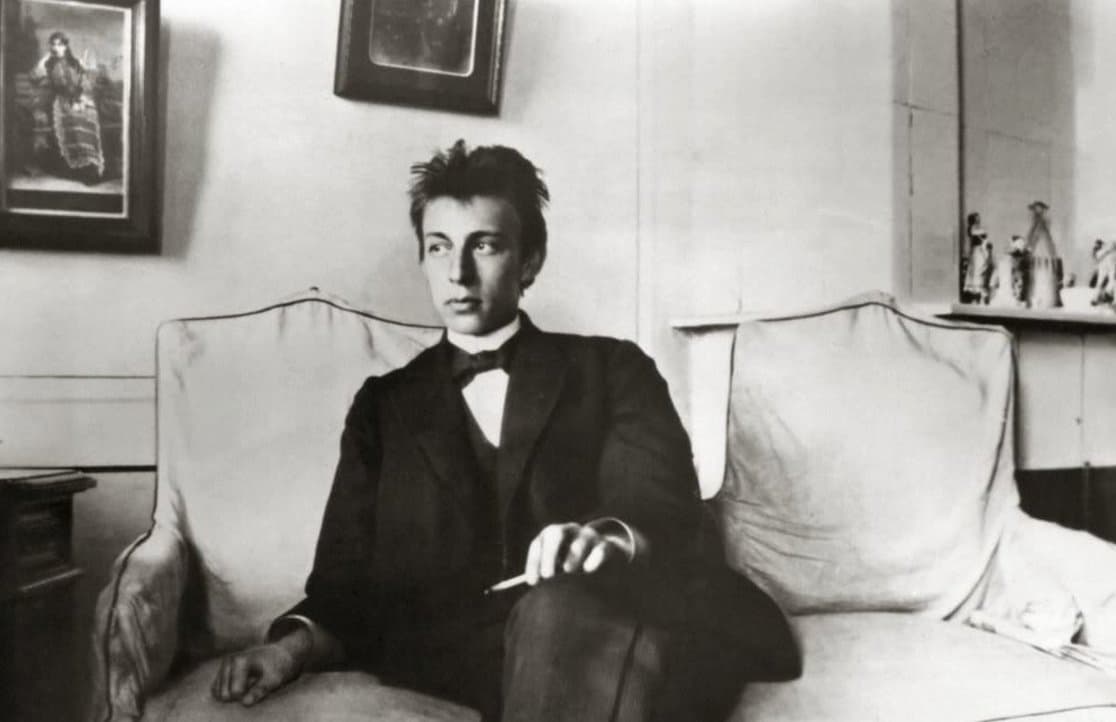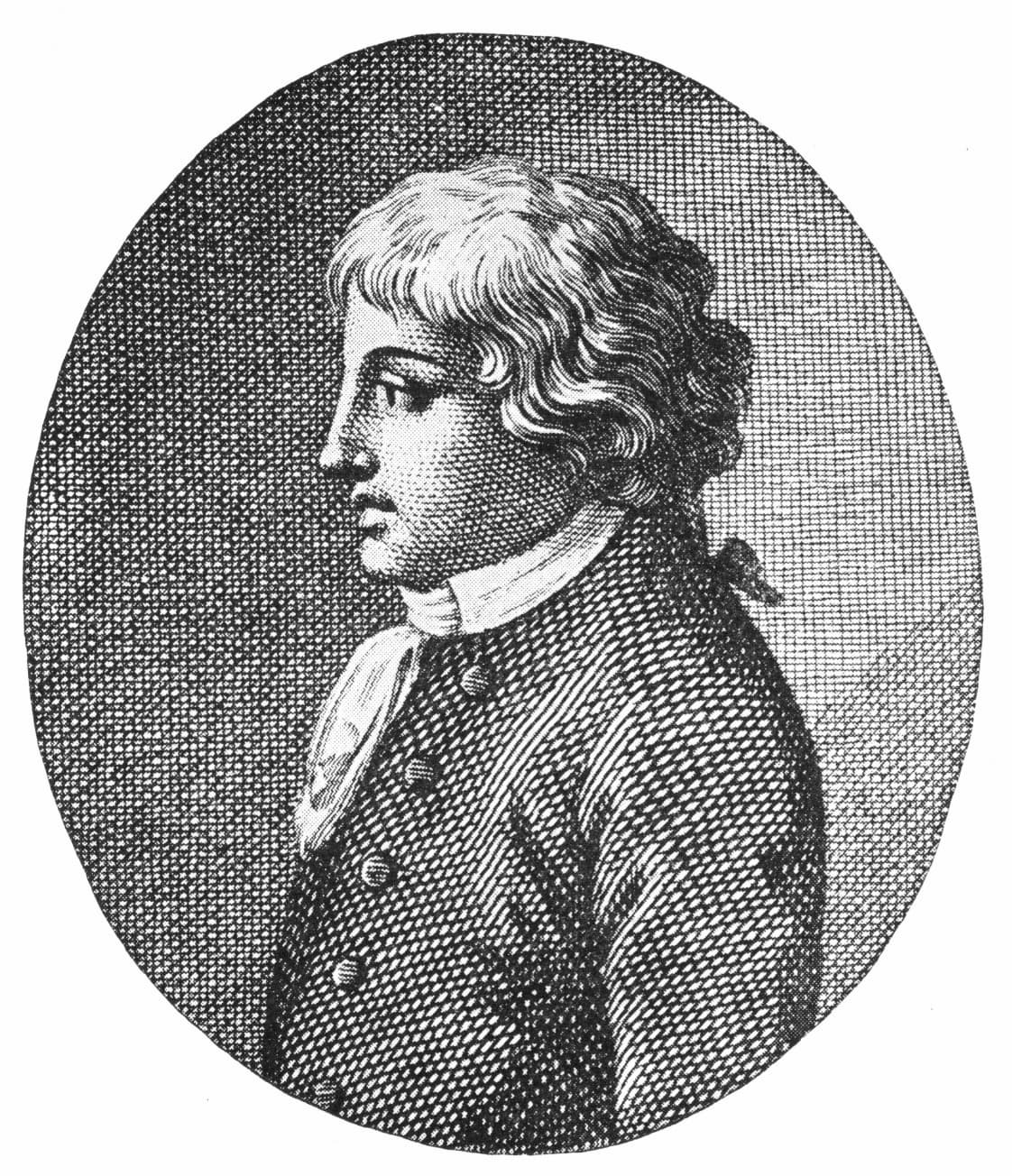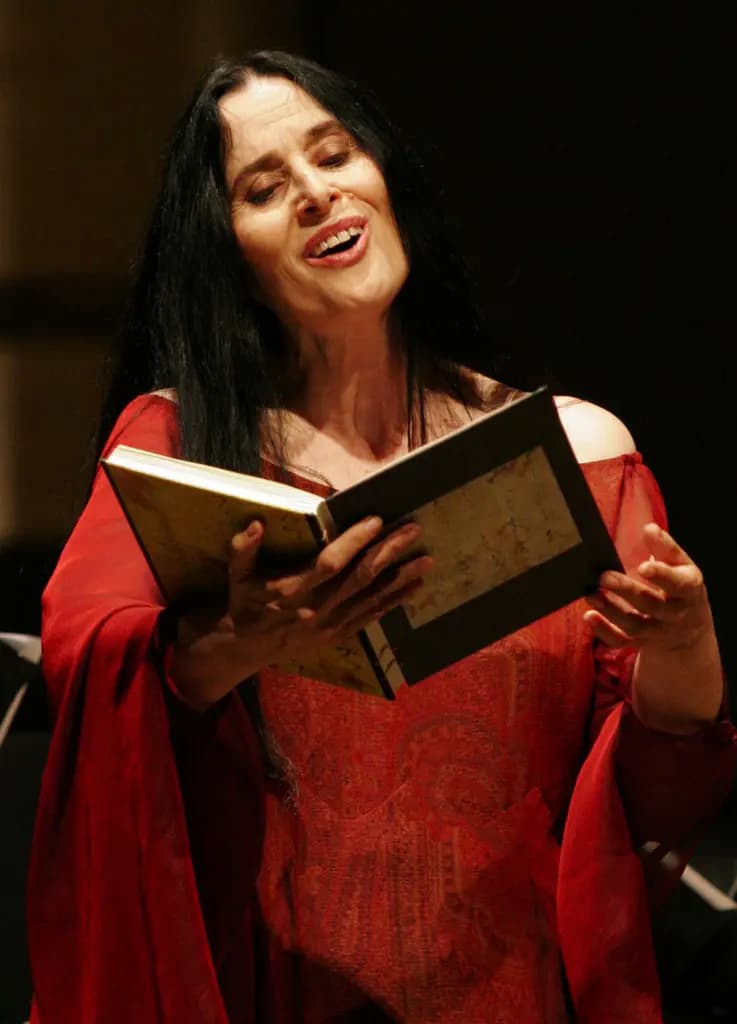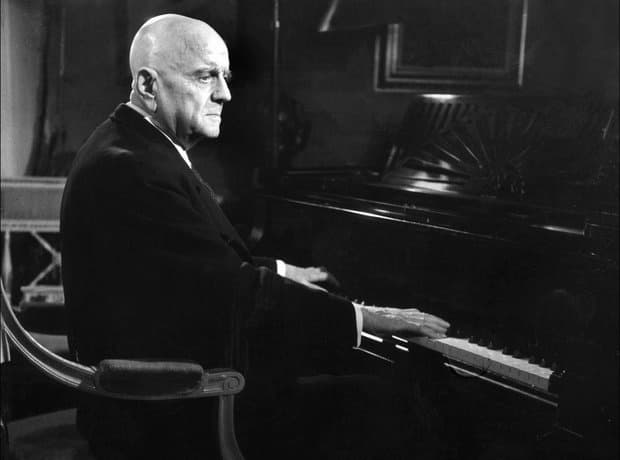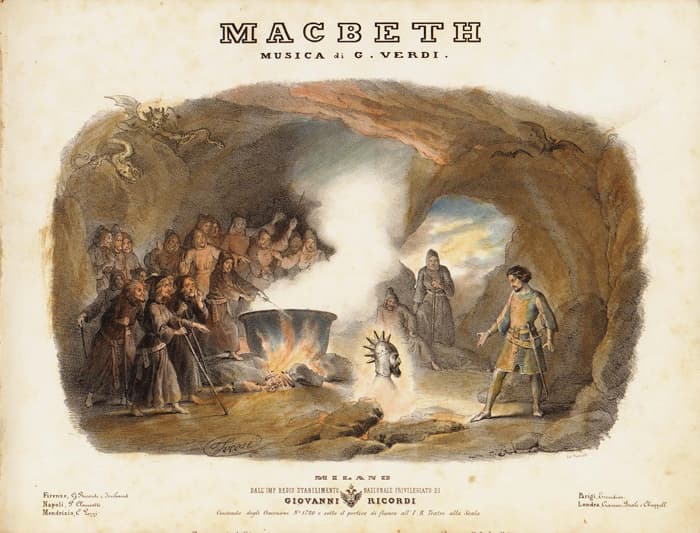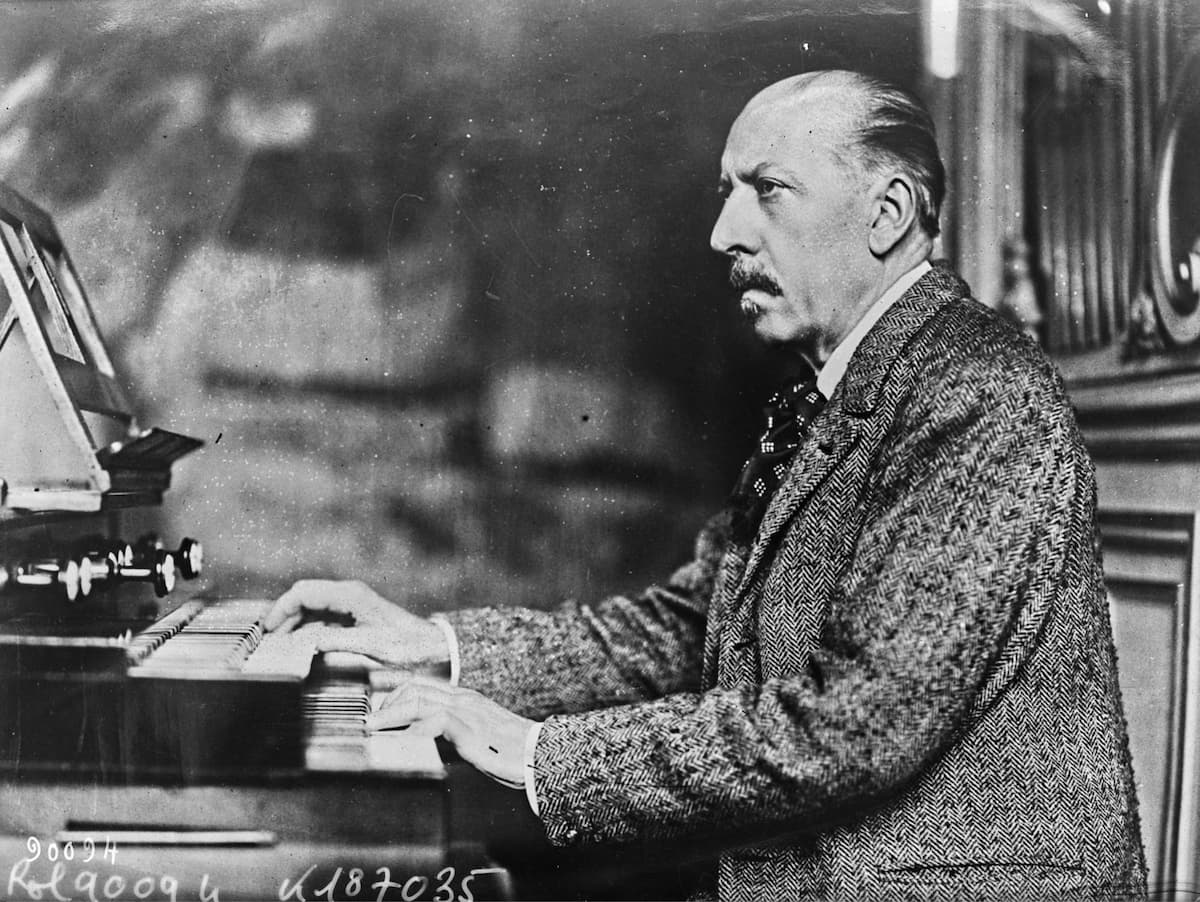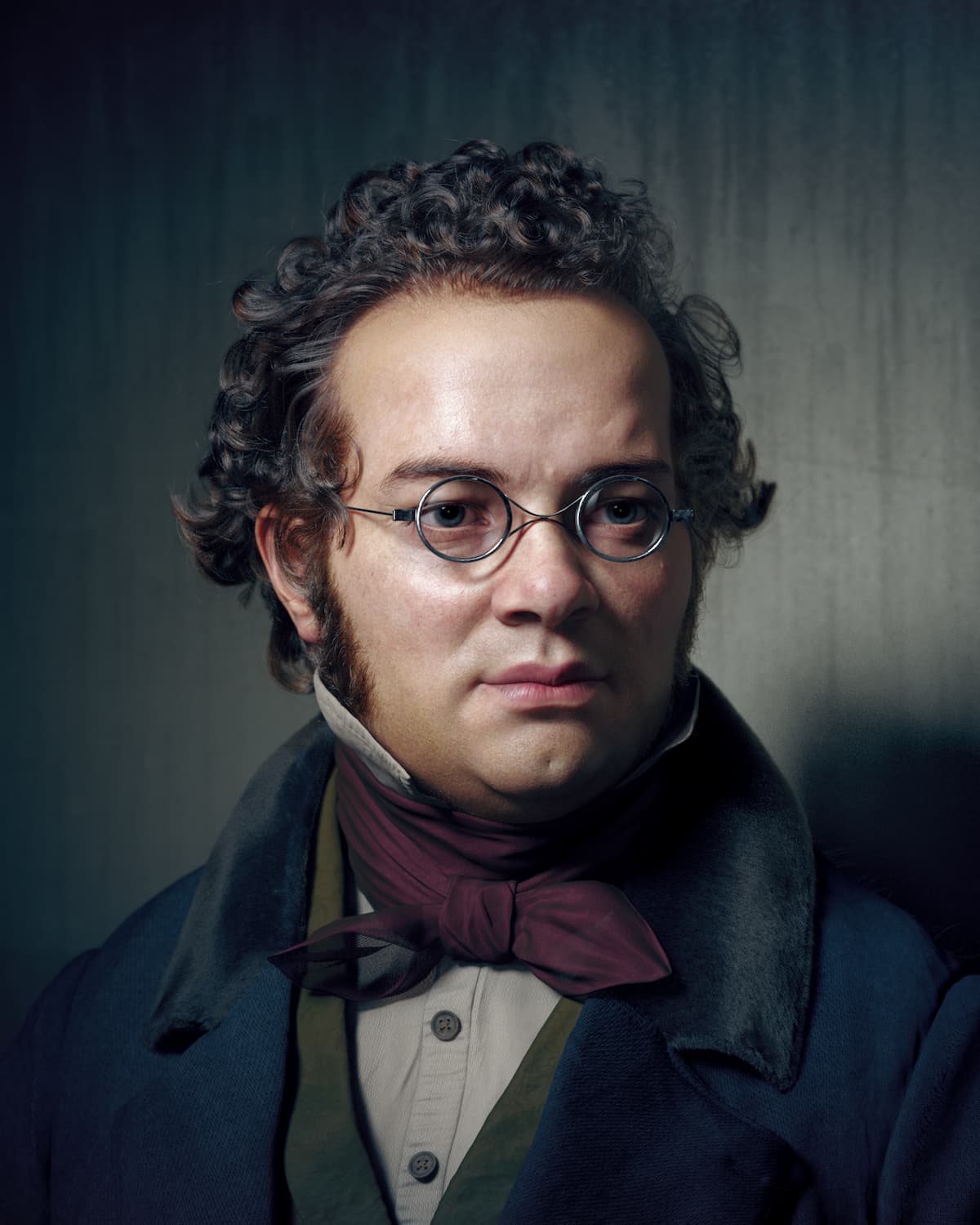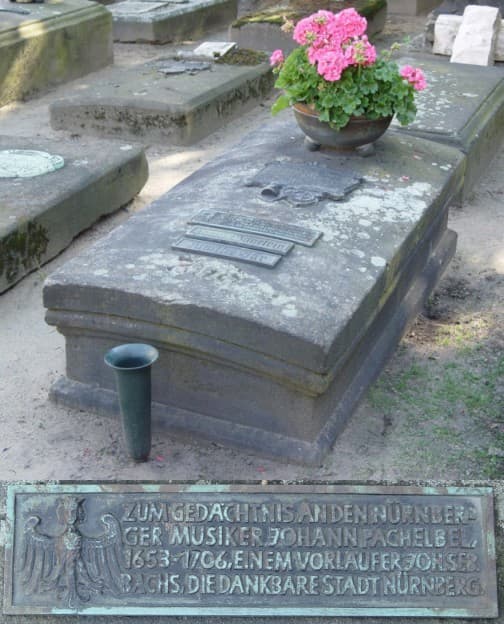The Buddying Composer Sergei Rachmaninoff made his first tentative attempts at composition during the summer of 1886. The resulting piano piece is unfortunately now lost, but his piano-duet transcription of Tchaikovsky’s Manfred Symphony was later played to Rachmaninoff’s “musical hero.”
Articles
Giovanni Battista Pergolesi died from tuberculosis at age twenty-six, on 16 March 1736. He was first buried in a common pit next to the cathedral at Pozzuoli in Naples. His first biographer and friend installed a memorial tablet in the
Catalan soprano Montserrat Figueras, together with partner and husband Jordi Savall, was a leading voice in the early music movement by focusing on the vast vocal repertoire from the Medieval, Renaissance, and early Baroque periods. Her approach to these immense
In 1962, pianist Harriet Cohen told a story about composer Jean Sibelius on the radio. Harriet Cohen interview from 1962 “I saw him a lot in Helsinki. I got awfully friendly with him. I used to tease him a lot,
Throughout his career, Giuseppe Verdi considered numerous novels and plays by French, Italian, Spanish, and German writers as possible sources for operatic projects. He did contemplate setting several Shakespearean plays, including Hamlet, Cymbeline, Antony and Cleopatra, The Tempest, Romeo and
Charles-Marie Widor (1844-1937) left behind a substantial number of meticulously crafted compositions for various instrumental and vocal combinations. However, he is primarily remembered for his ten organ symphonies. Inspired by the magnificent Cavaillé-Coll organ at Saint-Sulpice in Paris, these works
This, for me, is Schubert’s most genial piano sonata and one of his most popular. Like much of Schubert’s work, it reflects the Romantic spirit of the early 19th century, characterized by its lyrical beauty, harmonic daring, and emotional qualities,
Johann Pachelbel, famed composer of the even more famous canon, died in Nuremberg at the age of fifty-two on 9 March 1706. While his music enjoyed extraordinary popularity in Central Germany immediately after his death, 19th-century historians considered him a

